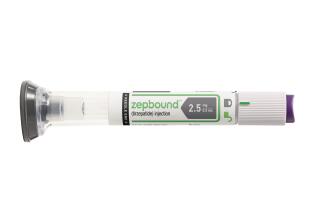Drug to Block Type 1 Diabetes Shows Promise
- Share via
Israeli researchers have developed the first drug that can block the development of Type 1 diabetes without shutting down the immune system and leaving recipients open to infections.
Tests in 31 patients in the early stages of diabetes showed that the drug can prevent progression of the disease by preserving insulin production and even can reverse some symptoms, the team reports in today’s issue of Lancet.
Type 1 diabetes is an autoimmune disease in which the patient’s immune system attacks and destroys insulin-secreting cells in the pancreas. The drug, DiaPep277, deactivates the cells that attack the pancreas without interfering with the rest of the immune system.
Researchers hope that, eventually, if they can administer the drug early enough in the disease process, they can block the development of the disorder, which afflicts 20 million people worldwide.
“This is only a small number of people, but it looks very promising, like it does work,” said Dr. Jerry Palmer of the University of Washington.
The results “are very intriguing,” added Dr. Jay S. Skyler of the University of Miami. “This is one of the very few interventions that can reverse diabetes in experimental animals. We need a large enough study to see if intervention is worthwhile” in humans.
Skyler is head of the National Institutes of Health’s TrialNet, which was set up recently to test potential therapies to block the progression of diabetes.
The drug’s manufacturer, Peptor Ltd., is negotiating with the NIH to have the drug included in one of TrialNet’s first studies. Meanwhile, several other trials in humans are either ongoing or will start shortly in the United States and Europe.
“We’re very excited,” said Dr. Dana Elias of Peptor. “Our belief is that, by preserving and improving the ability of the body to make insulin, we can significantly delay or even prevent secondary complications of diabetes.”
Most Type 1 diabetics eventually develop one or more major complications, including blindness, peripheral nerve damage, kidney failure, stroke and cardiovascular disease. Most physicians think these complications arise because blood sugar levels are not kept constant. Retaining some production of insulin by the pancreas, even if insulin shots also are needed, could normalize sugar levels and reduce complications.
The new drug is a peptide, a small fragment of a heat shock protein called hsp60. Heat shock proteins are found in all cells of the body. When cells are exposed to stress, such as heat, the proteins help them survive and function.
Elias, along with Dr. Irun R. Cohen of the Weizmann Institute of Science in Rehovot, Israel, and their colleagues have found that, by isolating and modifying a fragment of the protein, they can selectively block the activity of immune cells that attack the pancreas.
Tests in animals bred to develop Type 1, or insulin-dependent, diabetes have shown that the peptide can block the immune attack and, if administered early enough, can prevent the development of diabetes.
In the study, researchers enrolled 31 newly diagnosed diabetics who required insulin shots but who still retained some insulin function. Fifteen were given injections of DiaPep277 at enrollment in the study, at one month into the study and at six months. The other 16 diabetics were given a placebo injection at the same intervals. All continued to receive insulin as needed.
At the end of 10 months, insulin production had remained constant or even improved in all those who had received the drug, but it had dropped sharply in those who received a placebo. Some of those receiving the drug required smaller insulin doses.
Elias estimated that the patients had 3% to 7% of their insulin-secreting cells at the time of their enrollment. At the end of the study, those receiving the drug still had 3% to 7%, while those receiving placebos had only about 1%.
She said that patients would probably have to take the drug at regular intervals for the rest of their lives to maintain the benefit.
The company is just finishing two similar studies in Europe and Israel, Elias said. The results from one study, which is not yet published, are about the same as those reported in Lancet, she said. The other study has not been analyzed.
Researchers eventually would like to start treatment when diabetes is first detected, when patients still have as many as 40% of their insulin-secreting cells. If the immune attack could be blocked then, the patients might never need to take insulin.






